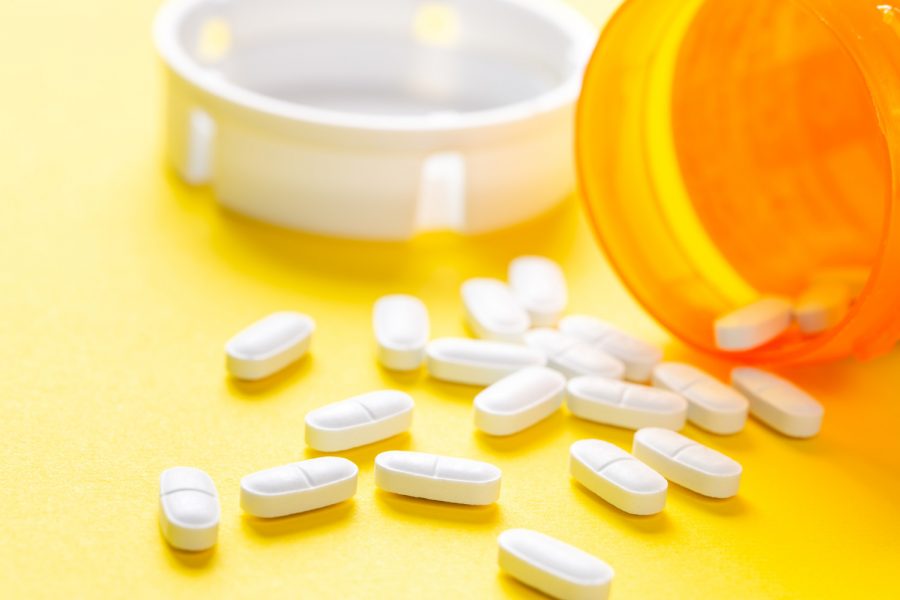As of 2023, nearly 59.3 million adults in the U.S. received treatment or counseling for their mental health. one in five U.S. adults experiences mental illness each year, and one in 20 experiences serious mental illness. And in 2021, suicide was the third leading cause of death for people aged 15-24 and the second leading cause of death for those 10-14 and 25-34. At least 8.4 million people in the U.S. care for an adult with a mental or emotional health issue.
Mental health is all around us — and it’s more important than ever to address it.
Yet within hours of being sworn in as the Secretary of Health and Human Services, RFK Jr released a statement threatening the prescription medications so many Americans depend on for their mental health, stating he intended to “access the prevalence of and threat posed by the prescription of selective serotonin reuptake inhibitors, antipsychotics, mood stabilizers, stimulants, and weight-loss drugs.”
This decision, let alone the potential follow-through, holds significant threats to the treatment of and the stigma surrounding mental health.
“By potentially taking away mood stabilizers, it gives the idea to the public that something is wrong with them and, in turn, wrong with the people needing them,” University of Iowa first-year student Brooklyn McLaughlin said. “This would significantly worsen the stigma around mental health.”
Indeed, just in issuing this statement, RFK implied there is something wrong with the prescriptions and the people needing them, that the medications are the “threat.” Or, it implies the reverse: There is nothing wrong, and the medications are inessential. It reduces chronic illnesses requiring such prescriptions into something arbitrary and trivial. It undermines the authority of doctors and professionals, implying they prescribe medication frivolously as a quick fix and easy solution.
But it’s not that simple or straightforward.
As someone who has been in and out of therapy since fourth grade and someone taking daily doses of Fluoxetine since ninth grade and anxiety medication starting this year, let me tell you, the decision to begin taking medication is not an easy or thoughtless process. It involves countless doctor’s visits, therapy appointments, lifestyle modifications, and plenty of tears.
I don’t think anyone particularly takes pleasure in relying on a prescription for their livelihood. I myself have expressed doubts about having to depend on something — something that could evidently be taken away — to be able to live my life. But sometimes, there simply isn’t a choice. Counseling, positive thinking, and the “thoughts and prayers” Republicans are so fond of only do so much.
When it comes down to it, people do depend on SSRIs, antipsychotics, mood stabilizers, or what have you, in the same way people with diabetes depend on insulin. My body does not effectively produce enough serotonin on its own; the bodies of people with diabetes do not produce enough insulin. We both need outside help, and that’s ok. Health is health. And although it seems dramatic to say so, this decision has life and death implications.
“Threatening to target mood stabilizers could arguably be one of Trump’s most dangerous decisions,” McLaughlin said. “The number of teens and young adults whose quality of life has been bettered by the availability of mood stabilizers is too great.”
McLaughlin has suffered from severe anxiety since her father died of cancer when she was nine years old. Years of therapy had helped, but by her sophomore year of high school, it was clear that greater aid was needed.
“Without the access to mood stabilizers, I’m not quite sure if I’d be here today,” McLaughlin said.
It’s also worth noting that when people cannot access the medications they need, they tend to self-medicate with drugs or alcohol or turn toward the holistic wellness industry, the former of which is dangerous for both the individual and for society as a whole, the latter of which can be helpful but not entirely depended upon. Especially for college students, where drinking and narcotic culture is prevalent, drugs and alcohol are easy to locate and become dependent upon.
Instead of worrying about the “threat” of these medications, Dr. Shelia Young-Mercado, the president of the Association of Black Women Physicians, recommends addressing the root causes necessitating them in the first place: “What are the levels of child abuse? What are the levels of intimate partner violence? What are the levels of community violence? What is the level of workplace trauma? What is the level of stress? If we want to decrease reliance on these medications, what are the environmental factors that are driving them?”
It is imperative mental health treatment stays accessible for the health and well-being of all Americans.
“Our government needs to keep their hands off our mental health and body autonomy and instead focus on the real issues that are leading this country down the wrong path and risking our democracy,” McLaughlin declared.
RFK’s statement is dangerous and stigmatizing. Mental health is very real and not something to be toyed with. Making America Healthy Again starts with addressing underlying factors of mental health issues and making treatments known and accessible.



